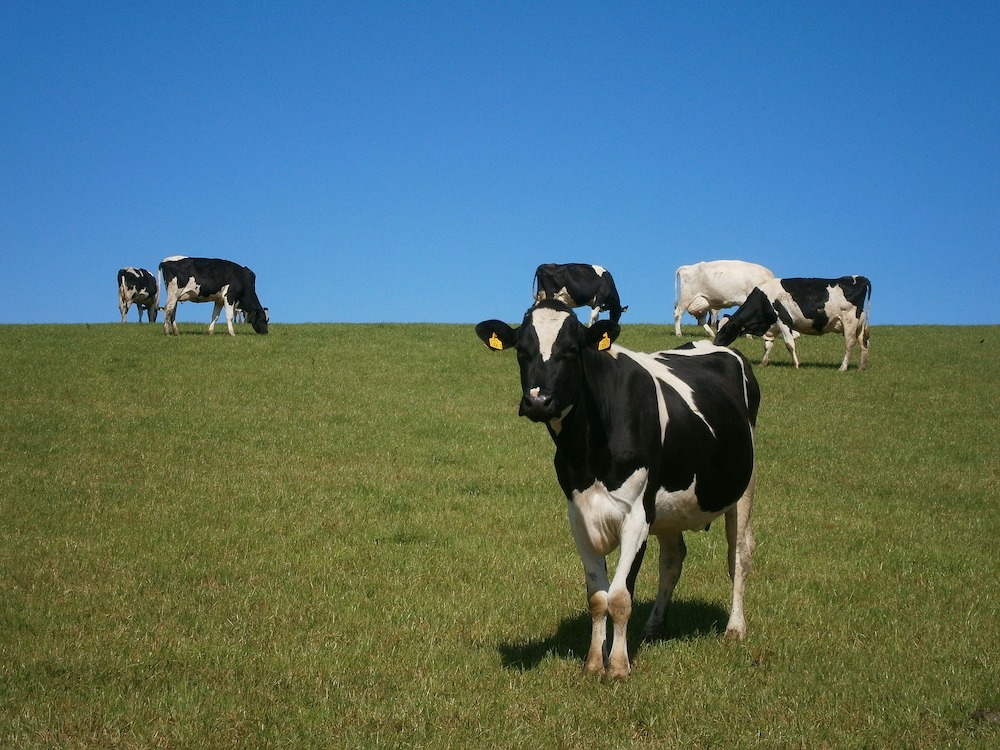‘Significant changes’ to Pasture for Life certification standards
24th July 2020
The Pasture-Fed Livestock Association has published its latest set of Certification Standards, listing what cattle and sheep producers must do to apply the ‘Pasture for Life’ marketing symbol on their produce.
The Pasture-Fed Livestock Association has published its latest set of Certification Standards, listing what cattle and sheep producers must do to apply the ‘Pasture for Life’ marketing symbol on their produce.
The Pasture for Life rosette guarantees the animals were 100 per cent pasture-fed and kept in a natural way that positively affects the soil and wildlife, while producing meat and dairy of the highest nutritional quality.
“The Pasture for Life standards define a very distinct method of animal farming – it is a sustainable way of producing meat and milk with a low carbon footprint,” explains Anna Heaton, who heads the PFLA Certification Committee.
“The standards are reviewed every two years and this fourth version has some significant changes. These have been made in response to discussions with the growing PFLA membership and other like-minded organisations we work closely with.”
The new version has been expanded to include all ruminants, including goats, bison, water buffalo and farmed deer, not just cattle and sheep. The list of products that can be certified now also include leather and fibres such as wool and mohair.
Allowed feeds
The human health benefits of eating Pasture for Life meat and dairy come from the green, leafy parts of the plants that animals eat. If they are given prohibited feeds such as grains, soya or maize silage, these health benefits are quickly lost.
Any harvested root crops such as sugar beet and fodder beet, which have a high sugar content are now prohibited. However, root crops and brassicas that are grazed are allowed, but must be planted in a mix that includes at least one other species. Arable silage or wholecrop must be grazed or harvested before the cereal crop reaches ear emergence and must also be grown with at least one other non-cereal species.
“The PFLA is keen to encourage diversity in pastures, in particular incorporating legumes and herbs and a move away from monocultures,” says Mrs Heaton. “The greater variety of plants lead to better soil health, better animal health and produces healthier food products for consumers to eat.
Animal welfare
The standards for animal welfare have been strengthened significantly by defining what good welfare looks like, following the ‘Five domains’ which promote positive physical and mental welfare. These are at the same level as expected for organic production.
“Consumers who seek out Pasture for Life products have an expectation that they have come from animals reared to the highest animal welfare standards and these standards now guarantee this.” says Mrs Heaton.
“They include the requirement for health planning, no prophylactic use of antibiotics, good practice for painful procedures such as castration and dis-budding and recommendations to signpost best practice in welfare, such as the provision of enrichments to keep housed animals content.”
Glyphosate
The use of glyphosate on land used by certified enterprises is now prohibited.
“Some studies have shown negative effects on earthworms, soil fungi, soil microbiology and the impaired uptake of important mineral nutrients. Since alterative management options exist within Pasture for Life systems, this precautionary approach to the use of glyphosate is the most responsible one until further independent research becomes available,” says Mrs Heaton.
Land used by a certified enterprise is defined as land which is grazed or used to make forage to feed certified animals. Glyphosate must not therefore be used prior to sowing or harvesting forage crop for certified animals.
New standards
While the latest version of the PFLA Certification Standards have now been published on the Pasture for Life website www.pastureforlife.org, the PFLA will not be auditing its certified members to these until the end of September 2020.

